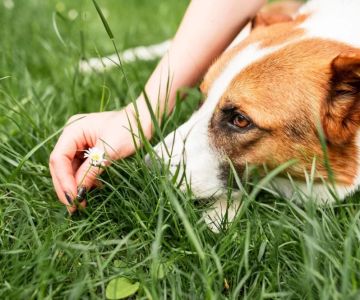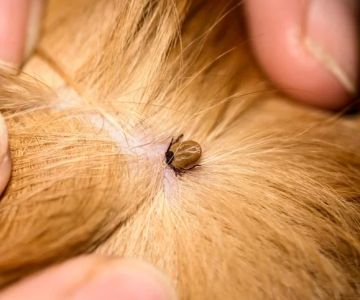1. Understanding Food Allergies in Dogs
Just like humans, dogs can suffer from food allergies that cause discomfort and health issues. These allergies typically develop when a dog’s immune system reacts to certain proteins or ingredients in their food. Unlike food intolerances, which are generally digestive issues, food allergies trigger an immune response that can affect your dog’s skin, gastrointestinal system, and overall well-being.
It’s important to recognize the signs of food allergies in your dog, as untreated allergies can lead to long-term health complications. By understanding the symptoms and causes of food allergies, you can take proactive steps to improve your dog’s health and comfort.
2. Common Signs Your Dog Might Have Food Allergies
If you’re concerned that your dog may have food allergies, there are several key signs to watch for. These symptoms can vary in severity, and some may be subtle, so it’s essential to observe your dog’s behavior and health closely.
2.1. Skin Issues: Itchy Skin, Rashes, and Hot Spots
One of the most common signs of food allergies in dogs is skin irritation. Allergic reactions often cause itching, redness, rashes, and hot spots on the skin. Dogs may scratch, bite, or lick excessively in an attempt to relieve the discomfort, leading to sores and infections. If your dog has persistent skin problems that don’t seem to improve with regular treatments, food allergies could be the culprit.
2.2. Digestive Disturbances: Vomiting and Diarrhea
Gastrointestinal issues are another common sign of food allergies in dogs. Vomiting and diarrhea can occur as the dog’s body reacts negatively to certain ingredients in their food. These symptoms may be sporadic or chronic, making it difficult to pinpoint the exact cause. If digestive problems persist even with a change in food, you should consider food allergies as a potential cause.
2.3. Ear Infections and Inflammation
Chronic ear infections and inflammation can also be linked to food allergies. Dogs with food allergies may experience redness, swelling, and discharge in their ears. If your dog is constantly scratching at their ears or shaking their head, it’s worth considering food allergies as a possible cause, especially if other symptoms are present.
2.4. Behavioral Changes: Lethargy or Irritability
Food allergies can also cause subtle behavioral changes in dogs. Allergic reactions can lead to discomfort, which might make your dog feel irritable or lethargic. If your dog suddenly seems less active or seems to be in pain, it could be due to the discomfort caused by food allergies.
3. How to Diagnose Food Allergies in Dogs
If you notice any of the signs mentioned above, it’s essential to consult your veterinarian for an accurate diagnosis. Veterinarians may recommend an elimination diet, which involves removing certain foods from your dog’s diet to see if their symptoms improve. This method allows you to pinpoint which ingredients are causing the allergic reactions.
Your vet may also suggest allergy testing or blood tests to help identify food allergies and create a treatment plan. Consulting a trusted veterinary practice like Hidden Brook Veterinary can provide you with the guidance you need to navigate your dog’s allergies and ensure they receive the proper care and treatment.
4. Treatment Options for Dogs with Food Allergies
Once your veterinarian has diagnosed your dog with food allergies, the next step is to create a treatment plan. This usually involves switching to a hypoallergenic diet that avoids the triggering ingredients. Many specialized dog foods are formulated to reduce allergic reactions and improve your dog’s skin and overall health.
Additionally, your vet may prescribe medications such as antihistamines, corticosteroids, or topical treatments to help relieve the immediate symptoms of food allergies. Regular check-ups will be important to monitor your dog’s progress and adjust the treatment plan as needed.
5. Preventing Future Allergic Reactions
Once your dog’s food allergies are identified and managed, it’s important to prevent future allergic reactions. Carefully reading food labels and choosing high-quality, allergy-friendly dog food is essential to avoid common allergens. If your dog has multiple sensitivities, your veterinarian can help guide you in selecting the best foods and supplements for their unique needs.
Keeping your dog on a strict diet plan and avoiding table scraps or unknown foods is also crucial in managing food allergies long-term. If you’re ever uncertain about what your dog can eat, consult your veterinarian or visit Hidden Brook Veterinary for expert advice and product recommendations tailored to your dog’s health.











